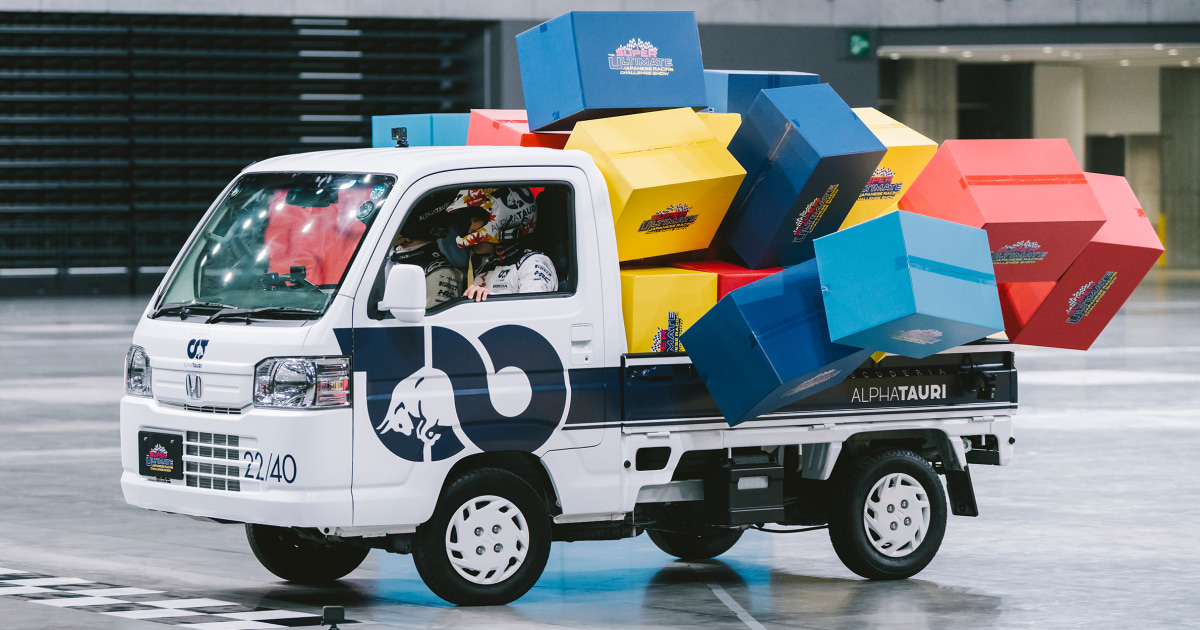Despite their limited and sometimes dubious legality, Kei trucks have soared in popularity. Kei truck exports from Japan to the U.S. have more than tripled in the last five years, according to data from the Japan Used Motor Vehicle Export Association.
Demand for smaller American-made trucks, such as the Ford Maverick and the Hyundai Santa Cruz, has risen as well. Sales of the compact Maverick have increased 85% over the last year, a Ford spokesperson said.
Whereas Kei trucks are limited to certain size restrictions — up to 11.2 feet long and 4.8 feet wide — the 2024 F-150 and other newer trucks come in a variety of specs to suit a variety of customers.
Justin Merriman, who owns a brewery in San Antonio, uses his 1997 Suzuki Carry to haul kegs and cater events. He imported it a couple of years ago for around $2,000, and he said the value is unmatched.
“You just can’t get an affordable pickup truck here in Texas,” he said. “And this Kei truck fits most everything we need.”
The vehicles’ small stature, however, has raised crash safety concerns, and several states have cracked down on them as a result.
Most recently, Rhode Island state Sen. Louis P. DiPalma proposed legislation that would prevent the registration of additional Kei trucks in the future while grandfathering in current ones.
Because the trucks don’t meet Federal Motor Vehicle Safety Standards, they’re legal to import only 25 years after having been manufactured. Then, it’s up to each state to decide whether to allow them on public roads.
Most states have no recorded law about Kei trucks, which often leaves guidelines up to local motor vehicle departments. Even in states where Kei trucks are expressly legal, like Maine or Kansas, they’re often prohibited from highways or interstates where speeds exceed 55 mph.
“In very few states is there actually a law that says Kei trucks are illegal. Most DMVs just have some sort of internal policy,” said David McChristian, founder of Lone Star Kei, an advocacy group dedicated to protecting Kei truck ownership across the country.
McChristian, whose organization helped persuade the Texas DMV to register Kei-class vehicles, said the efforts to keep Kei trucks off the street might have something to do with the threat they pose to domestic truck and off-road vehicle manufacturers.
“I think there are American manufacturers that have a lot of money and are not interested in having Kei trucks street legal,” he said.
Last year, more than 7,500 Kei trucks were imported to the U.S. from Japan. That’s a 300% increase from five years previously, in 2018, when around 1,800 were imported.
“Estimating the exact number of Kei trucks in the United States is challenging, but it is believed there are tens of thousands of these vehicles currently in the country,” Kei Trucks America, which delivers Kei trucks across the U.S., said in a statement.
“This number has been growing significantly over recent years, reflecting their rising popularity,” it added.
As cars and trucks continue to get more expensive, that popularity is expected to rise.
“My Kei truck can do virtually everything a Ford-150 can do but at a fraction of the price,” said McChristian, who bought his 1998 Suzuki Carry for $3,800.
“It’s a life-changing vehicle.”

